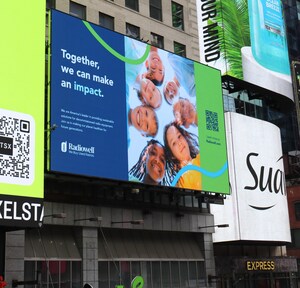
NEW YORK, June 6, 2024 /PRNewswire/ -- Radiowell is warning hospitals and healthcare administrators that transmitting private information over two-way radios ( aka walkie talkies ) could violate HIPAA and privacy laws, and pose a serious risk to patient safety.
Last month, a Radiowell executive witnessed emergency room nurses using inexpensive Amazon-purchased radios to convey patient information in a New York hospital. Spokesperson Andrew Park explains, "ER nurses were discussing patient information via unencrypted and license-free radios. This put the facility at risk of violating HIPPA laws and also jeopardizes patient safety."
Inexperienced buyers of radios are easily misled by "privacy" claims on Amazon from Chinese radio manufacturers that advertise their "license-free" radios as suitable for healthcare environments. But since these radios are not encrypted, their transmissions can be monitored by anyone with a $40 radio scanner. These radios might be suitable in countries with weak patient privacy and compliance laws, but they do not belong in American hospitals.
Unsecure radios also present significant safety risks to patients. Since almost anyone can interfere with their communications, the risk of fake transmissions puts lives at risk. "We've heard of police helicopters dispatched by fake radio transmissions, so there's reason to believe that bad actors would cause the same havoc in a hospital," explained Park.
Radiowell is advising hospitals and entities that use 2-way radios to transmit private information to take these immediate actions:
1. Immediately cease all two-way radio communication of private information until their radios are verified as "HIPPA compliant."
2. Do not use equipment advertised as "license-free." Instead, switch to commercial and encrypted equipment from major radio manufacturers.
3. If using Push-to-Talk over cellular radios, arrange for your IT administrator to perform an end-to-end audit of the software, operating systems, and web platforms managing these devices. These devices have numerous security vulnerabilities that are not yet fully understood but are a major security concern for their users.
4. Consult a professional radio dealer to determine the best options for encrypted communications over licensed and commercial frequencies.
5. Educate hospital staff on private radio communications. To support staff training, Radiowell is providing a limited supply of no cost privacy stickers and posters on its website.
About Radiowell:
Radiowell is dedicated to preventing the nation's landfills from being the dumping grounds for end-of-life commercial and government radios. What began 25 years ago as a passion project has now become the nation's largest buyer of obsolete, surplus, and used radio equipment. Companies, governments, and other organizations that wish to sell their used radio equipment can contact Radiowell for an offer.
SOURCE Radiowell







Share this article